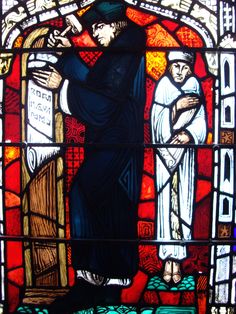
News
&
Articles
12.7.2025 - Annual Congregational Meeting
11.30.2025 - Advent Wreaths 2025
11.30.2025 - St. Mark's Annual Report Issued
10.25.2025 - St Mark's Members Walk to Fight Hunger
8.31.2025 - Special Congregational Meeting Called
8.17.2025 - Baptism of Miles William Boyle & Jack Charles Boyle
7.5.2025 - Independence Day Hospitality
6.29.2025 - Watch the July 4 Concert
3.9.2025 - Shrove Tuesday 2025
2.16.2025 - Souper Bowl of Caring - Eagles vs. Chiefs
2.9.2025 - Blessing of the Keys - Levi Gair
1.13.2025 - Welcome to St. Mark's New Council Members
12.8.2024 - Report from St. Mark's Annual Meeting
12.1.2024 - 2024 Annual Report Issued
12.1.2024 - Creating Advent Wreaths
11.17.2024 - Operation Christmas Child
10.31.2024 - Summer & Fall Food Collections
10.13.2024 - Cropwalk
9.30.2024 - Supporting Camp Mount Luther
7.27.2024 - Indoor Church Picnic
1517 - 2017
Celebrating 500 Years of the Reformation
 Martin Luther issued the “Disputation of Martin Luther on the Power and
Efficacy of Indulgences” that became known as his “95 Theses” in
Wittenberg on Oct. 31, 1517. Martin Luther and his allies used
pamphlets, ballads and woodcuts to promote their message of the
reformation of the church.
Martin Luther issued the “Disputation of Martin Luther on the Power and
Efficacy of Indulgences” that became known as his “95 Theses” in
Wittenberg on Oct. 31, 1517. Martin Luther and his allies used
pamphlets, ballads and woodcuts to promote their message of the
reformation of the church.
Following the practice of naming a “heresy” after its leader, the name "Lutheran" originated as a derogatory term used by Johann Eck during the Leipzig Debate in July 1519. Rather than “Lutheran,” Martin Luther preferred to describe the reformation as “evangelical,” which is derived from the Greek word meaning “good news.”
Generally speaking Lutheran teaching can be summed up by “Three Solas”: (1) Grace Alone; (2) Faith Alone; (3) Scripture Alone. The split between the Lutherans and the Roman Catholics began with the Edict of Worms in 1521, which officially excommunicated Luther and all of his followers.
 Luther’s Small Catechism (“Der Kleine Katechismus”) was published in
1529 for the teaching of children at home by their parents. Luther’s
Large Catechism consisted of works addressed particularly to clergymen
to aid them in teaching their congregations.
Luther’s Small Catechism (“Der Kleine Katechismus”) was published in
1529 for the teaching of children at home by their parents. Luther’s
Large Catechism consisted of works addressed particularly to clergymen
to aid them in teaching their congregations.
The Book of Concord or “Concordia” (1580) contains documents that explain what Lutherans believe. It includes the three creeds of the ancient church and Reformation writings such as Luther’s Small and Large Catechisms, and the Formula of Concord. Lutherans believe in “Salvation by grace through faith” — that salvation comes by grace through faith alone, not by works and sacraments.
Philipp Melanchthon (Feb.16, 1497 — April 19, 1560), was one of the primary founders of Lutheranism. Born Philipp Schwartzerdt, he translated his name to its Greek form — Melanchthon. He made the distinction between law and gospel the central formula for Lutheran evangelical insight.
The first Lutheran worship service in North America is believed to have taken place in what is now known as Manitoba on Jan. 23, 1620. The sermon was delivered by Pastor Rasmus Jensen. Massive immigration from traditionally Lutheran countries to the United States between 1840 and 1875 resulted in 58 Lutheran synods being formed.
The first Lutheran pastor to be ordained in the United States was German-born Justus Falckner on Nov. 24, 1703. German Lutheran Pastor Henry Muhlenberg was sent to North America as a missionary upon the request of Pennsylvania colonists. He is considered the patriarch of American Lutheranism.
As late as the 19th century, Lutherans in the United States still looked to their European homelands to supply pastors and worship materials. Founded in 1826, the Lutheran Theological Seminary at Gettysburg in Pennsylvania is the oldest operating seminary in the ELCA.
The Susquehanna University Choir is performing a Reformation concert, which will be broadcast on WVIA-TV as follows:
- Thursday, October 26 at 8 pm
- Friday, October 27 at 2 pm
- Sunday, October 29 at 6 pm
Read more about the Reformation: